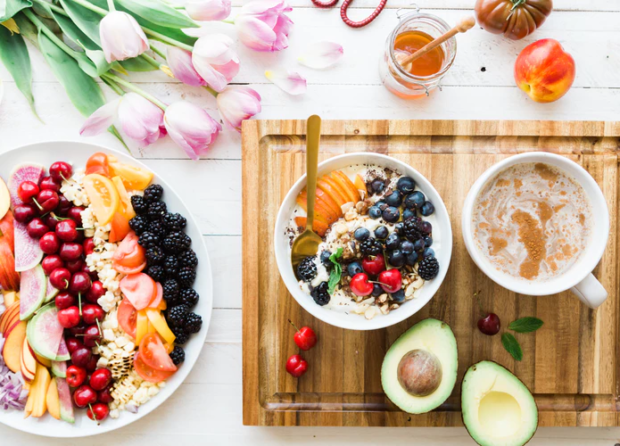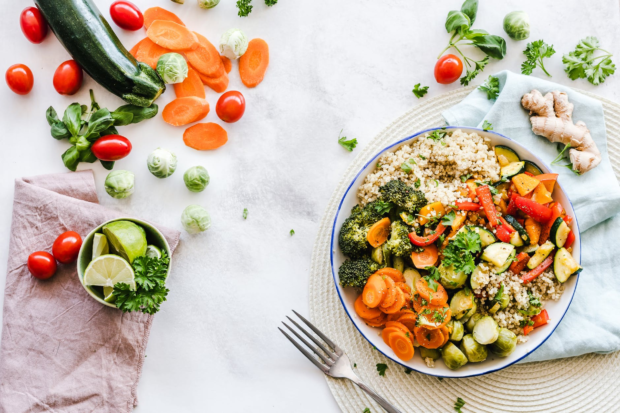Proper nutrition is essential for an aging person. Every caregiver ought to ensure he/she provides just the right food to seniors. One of the reasons for this is the fact the senior’s digestive system might not be as strong/sharp as it was a few decades ago. Body processes are also slower, which again increases the risk of nutritional deficiencies among other health concerns. Taking into consideration the senior’s diet plan is the first step to making them comfortable and healthy for your home care.
As a caregiver, you should know what foods your clients prefer. It is also your responsibility to find foods that the seniors will enjoy eating while providing them with all the essential nutrients. You could ask the client about their dietary preferences and even refer to suggestions provided for by their doctor.
Each client will have not only specific dietary needs but also foods that they prefer as well. Some seniors won’t touch certain foods simply because they don’t like them, that is okay. You need to work with what they prefer first then work your way up into foods that are more beneficial to their bodies. Introduce these foods slowly until his/her taste has improved and creates a liking for them. This way, you will be able to prepare healthier and better-tasting food for them.
What foods do you give your clients? How do you get your clients to like your meals? We would appreciate it if you shared some insight with us as well. Share your ideas and approaches in the comments below.
It can be quite a challenge for a caregiver to provide at least one balanced meal to his/her clients. It is even more intimidating when you have to handle all the other tasks that come with caregiving. Caring for a loved one with special diet needs can be particularly challenging; one of the reasons caregivers need to be patient and hard-working at the same time.
Proper nutrition is of great importance to all, and especially older adults with special needs or chronic illnesses. Good food not only fuels your body but also helps take care of certain health conditions. There is more to healthy eating than scouring food levels and calorie counting. The key to a good meal is looking for foods that the seniors can make a connection with, and those that bring life’s basic pleasures. You don’t have to struggle to find the right food to put on the table, understanding your client’s nutritional needs is all it takes.

What Makes a Good Diet
Under normal circumstances, a proper diet is comprised of proteins, carbohydrates, essential fats, minerals, and vitamins. Although balanced, this isn’t always the case with seniors. Most of these diet plans fall short of nutrients that seniors need. These include:
1. B Vitamins
Folate, Vitamin B12, and Vitamin B6 are essential for a senior’s health. Luckily though, you can get all three from fortified cereals. Other sources of B vitamins include:
- Vitamin B12: Fish and lean meats
- Vitamin B6 from whole grains, liver, and other organ meats
- Folic acid from beans, peas, and dark green vegetables.
2. Vitamin D and Calcium
Vitamin D and Calcium are essentially required for strong and healthy bones/teeth. The most common sources of calcium include dairy products (yogurt, cheese, milk), dark leafy vegetables (kale and broccoli), and bone soup. Basking in the morning and evening sun will get you plenty of Vitamin D. You can also get this from foods fortified with vitamin D.
3. Dietary Fiber
Fiber is known to promote digestion and movement of food down the digestive tract. With the slowed-down processes in seniors, you need to ensure all their meals have a good portion of dietary fiber. Fiber helps prevent constipation, diabetes, and is good for the heart as well. Some of the best sources of dietary fiber include vegetables, whole grains, and beans.
4. Healthy Fats
While you ought to limit cholesterol and saturated fats, you should definitely avoid trans fats. These fats cause more harm to the heart than good. Good fats are, however, recommended. Examples of good fats include polyunsaturated fats, mono unsaturated fats, etc. This is good for the heart. Healthy fats also come in handy in:
- Lowering the risk of stroke and heart disease
- Preventing abnormal heart rates
- Increasing HDL while lowering LDL levels
- Fighting inflammation
- Lower blood pressure
- Prevent narrowing and hardening of arteries (atherosclerosis)
Adding healthy fats to your diet plan also helps induce satiation hence good for weight loss. Your clients will be more satisfied for longer.
5. Potassium
Potassium is one of the essential minerals required to control the electrical activity of the heart and muscles, as well as regulate fluid balance. It is also known to lower blood pressure, reduce the risk of stroke, preserve bone mineral density, and prevent muscle mass loss, as well as prevent kidney stones. Potassium deficiency is one of the leading causes of high blood pressure. The most common sources of potassium include yogurt, potatoes, bananas, and beets.

Easy Ways To Provide The Recommended Nutrition For Seniors
As mentioned earlier, you never have to struggle to find the right food for your clients. Start with the foods that he/she loves, their individual dietary needs, and most importantly, follow nutritional directions as provided for by the doctor. Here are a few simple tips to help you out:
1. Balance the plate
To do this, fill half of the plate with fruits and vegetables, then the other half with lean proteins and whole grains in equal portions.
2. Stay away from bad fats
Identifying good fats from a wide range of fats in the market can be tricky. Here is a simple way to avoid the bad ones.
- Only use oils instead of solid fats – this means butter is a no-no.
- Consider seafood, lean meat, and poultry
- Go for fat-free or low-fat dairy products
3. Switch things up
You don’t want to serve the same foods as a senior. Learn to switch proteins, veggies, and fruits with each meal. Try serving them in ways more than one.
4. Look for color
The plate needs to be bursting with bright colors. This means lots of colored fruits, vegetables, etc.
5. Back to the basics
Proper nutrition comes down to the foods you serve. Include lean meats, lots of vegetables and fruits, whole grains, and a few dairy servings. Be sure to throw some nuts, eggs, and poultry into the mix.

Feeding an older adult suffering from a chronic condition can be a challenge. Here are a few tips to help you overcome some of these challenges.
How To Overcome Common Eating Challenges With Seniors
1. Chewing and Swallowing
Chop the food into tiny pieces and ensure they are adequately cooked and soft. Cottage cheese and mashed potatoes would come in handy. Consider puréed meals if possible. If he/she, however, has trouble swallowing, you should then ensure the food is in liquid form – serve with a straw. Be sure to serve the meals with water as well.
2. Stress or Confusion
Simplify things on the table by:
- Just putting out the utensils needed
- Serve with fruit or a sweet occasionally. Don’t serve sweets if prohibited.
- Eat together or make meals a social thing.
- User smaller plates.
- Serve one food at a time.
3. Loss of Appetite and Dull Taste Buds
Age and common medications prescribed to seniors tend to weaken their sense of taste. Try to make the meals appealing and tasteful by:
- Add spices, herbs, vinegar or lemon juice for flavor. Avoid using salt for flavoring.
- Make meals visually appealing by adding brightly colored ingredients.
- Vary textures and tastes.
If a loved one struggles to eat due to lack of appetite, consider serving smaller portions of food frequently. Skip the 3-meal rules and go for 5 or 6 meal times. Encourage him/her to take on physical exercise to boost their appetite.
4. Sore Mouth
Softer and creamier foods are recommended for seniors with a sore mouth. Have your loved one see a dentist and ensure everything is ok.
5. Coordination and strength issues
If the forks and spoons prove confusing to the senior, then consider finger food. Cut-up sandwiches and cheese cubes would be a nice start.
6. Ensure Lots of Water
Older adults will go for days without asking for a glass of water or feeling thirsty. This can quickly lead to dehydration. To avoid this, consider:
- Include a glass of water when you serve
- Avoid foods with added sugar or salt
- Serve low-fat or fat-free milk
- Serve soup broth.
Enjoyed reading this? Then you should also read how the Mediterranean Diet protects older adults from becoming frail





![women [longevity live]](https://longevitylive.com/wp-content/uploads/2020/01/photo-of-women-walking-down-the-street-1116984-100x100.jpg)










